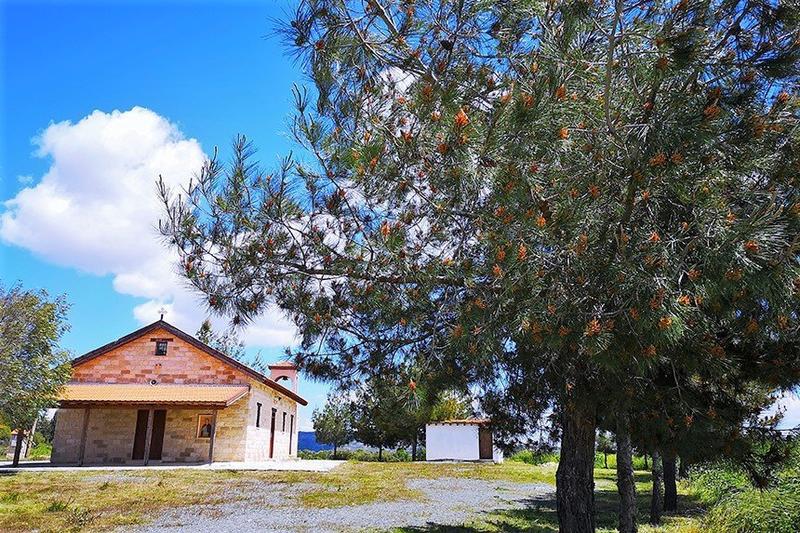
South of the village of Vouni, just off the main road towards Limassol, one will find a small, stone-built chapel. It features a sloping, tiled roof, wooden doors, and a single belfry, as well as a small, paved courtyard surrounding it. This is the chapel dedicated to a little-known saint and miracle worker, Saint John the Russian.
According to religious tradition, the story of Saint John the Russian dates back to the Russo-Turkish war of 1711, when he was taken prisoner and sold into Turkish slavery. By the time of his death in 1730, both Christians and Muslims had faith in his sainthood and placed his remains beneath the Holy Tomb of the church he frequented when he was alive. When Turkish soldiers plundered this church 100 years later, they tried to burn his body but discovered that flames could not destroy it. News of the saint’s miracles soon began to spread across Asia Minor and beyond.
Today, this small, modest church regularly welcomes faithful visitors seeking miracles. Its serene setting, away from the center of the village and flanked by rolling fields and a view of the mountainous region of Vouni beyond, create a reverent atmosphere where only the tranquil sounds of nature can be discerned. The church is easily accessible by drivers, and faithful pilgrims visit often, praying for miracles and leaving behind gifts and other objects in honor of the saint. The church celebrates each year on May 27, with a mass dedicated to Saint John the Russian.
.